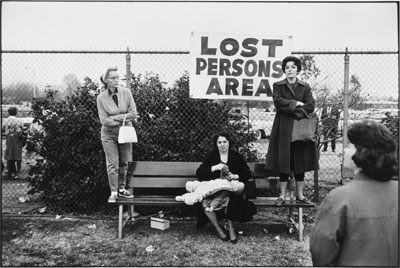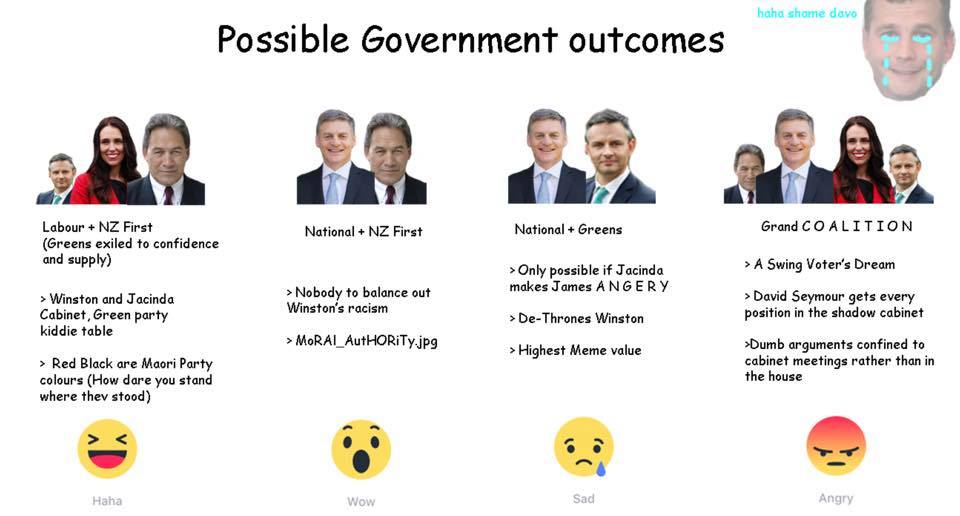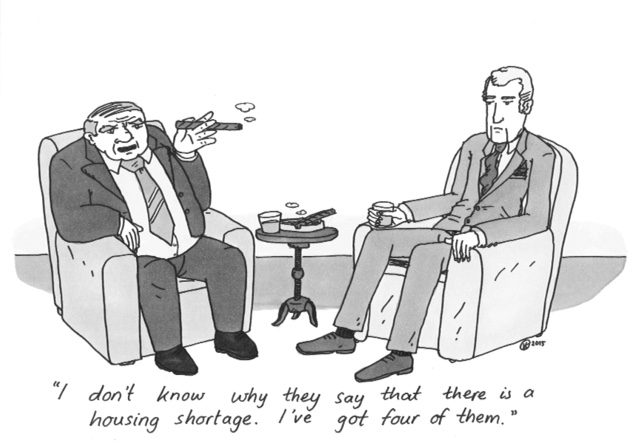Category: left wing
The difference between Green and Labour: a tale of two Finance Ministers
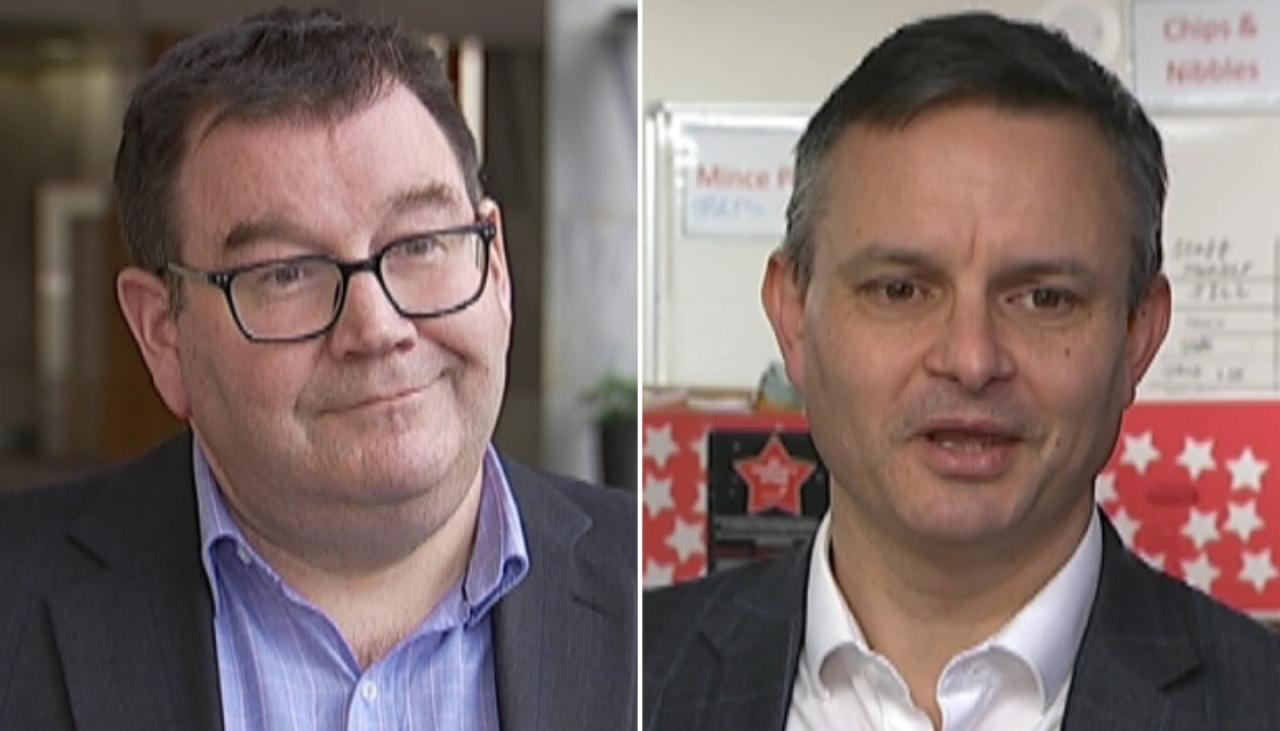
So the Greens co-leader James Shaw recently made a mistake. In his role as Associate Finance Minister approving funding for “shovel-ready” projects, he fought hard for a private “Green school” to get funding to expand their buildings and, therefore, their student capacity. There are many problems with what he did: forgetting to oppose private schools as per Green policy; supporting an approach to environmentalism based on individual education of wealthy elites’ children, rather than systemic change; finally showing some spine around the cabinet table and for this; being so out of touch with his party’s kaupapa and membership that he actually thought his actions would be seen as a “win” for the Greens. It was a big mistake and it doesn’t say anything good about Shaw’s political judgment.
But here’s what happened next: the Greens’ membership, supporters, and former MPs flipped out. They rightly criticised what Shaw did, instead of sycophantically defending his actions because he’s the party leader. And Shaw called an emergency meeting with members, admitted it was a mistake, apologised unreservedly, and tried to do whatever he could do to reverse his actions.
Meanwhile, Grant Robertson, Shaw’s fellow Wellington Central-based MP and carpool buddy*, was working on an announcement of his own. Robertson is also effectively the second most important leader of his party, and he’s also a Finance Minister… and not just an associate one, but the proper one.
Robertson’s announcement was that his party, Labour, are finally going to increase tax on the rich. First, they’ve brought in a new top income tax rate of 39% on income above $180,000. And second… there is no second. That’s it. In this country of notoriously low taxes on the rich, in the greatest economic crisis since the Great Depression, their revenue policy is: Bringing back the Helen Clark/Michael Cullen top income tax rate of 39c, but to qualify for that top tax rate you have to earn as much as someone working 183 hours and 10 minutes per week on the minimum wage. No wealth taxes, just a small income tax change that even right-wingers think is too low. Australia, the UK, and other OECD countries have higher income tax on the rich, lower taxes on the poor, and of course capital gains taxes, even before the COVID recession… but Labour’s pathetic approach is literally lower taxes on the rich than what Don Brash proposed as National leader in 2005.
So what happened next after Robertson’s announcement? Well, there was dismay and anger from the left and from the centre (this example from No Right Turn is characteristically concise and well-reasoned: If not now, when?). But did Labour’s membership and supporters revolt? Did Robertson, like Shaw, call an emergency members’ meeting, apologise profusely for his massive misjudgment, and do everything in his power to rectify his mistake? Nope. None of that. The leader of the country’s biggest union, the PSA, even welcomed the announcement. The policy stands, and will probably become government policy after the election, unless polls change and the Greens get some leverage. Yet another opportunity for Ardern’s and Robertson’s promised “transformational change” has been wasted.
And therein lies the difference between the Green and Labour parties.
* “carpool buddy”: My partner saw Robertson giving someone a ride in his Labour car during the 2017 election campaign, and she’s like 76% sure it was Shaw.
The “teal deal” is not going to happen, and it’s not the Greens’ fault
“National and the Greens should work together” sentiment seems to have reached an all-time high. This is not because the two parties have moved closer together in policy or philosophy. It’s because after the election, this is the only way—short of a Nat-Lab grand coalition—to lock Winston Peters out of any role in government.1
I can’t be bothered to list examples because I’m sure you’ve all seen or heard people calling for a blue-green government arrangement (or “teal deal” if you will). Perhaps you’ve even suggested it yourself.2
What I want to talk about is the suggestion that usually comes after “National and the Greens should work together”. This is how former National PM Jim Bolger puts it:
“the Greens might be quietly reflecting on whether they, unique in the world of Green parties, should only link themselves to left-wing politics, whereas the environment is neither left wing or right wing, frankly. The environment is the environment; it’s Mother Earth we’re talking about.”
The idea is that the Greens would be more effective in pushing environmental policy if they stuck to that, and got rid of their insistence on left-wing socio-economic policy. This way, it is suggested, they would have a better chance of being able to find room for compromise and cooperation with National. Other Green parties in countries like Germany have been willing to form coalition governments with right-wing parties.
The Greens’ usual response is to give reasons why environmental justice and socio-economic justice (or environmental sustainability and socio-economic sustainability) are inextricably linked. Ever since they were the Values Party they’ve pushed both, and they don’t intend to stop now.
Another response could be to say that New Zealand is not Germany. Germany has a democratic socialist party called The Left which pushes left-wing policy even if the centre-left parties (the Greens and the SDP) don’t—even if they form grand coalitions with the centre-right. In New Zealand, the Alliance and Mana have disappeared as left voices in Parliament. Moreover, Labour kickstarted neo-liberalism and haven’t really repented from it. Until Labour make a significant change from Clark/Blair-esque compromise to Corbyn-esque social democracy, the Greens are the only party significantly trying to push New Zealand in a leftward direction.
However, both of these responses to the challenge accept the terms of the challenge (like Labour accepted the terms of National’s “dead cat” “fiscal hole” challenge). These responses accept the assumption that it’s the Greens’ left-wing socio-economic stance that blocks them from working with National, and that they’d be able to find common ground on the environment.
However, I don’t think this is correct. Certainly the Greens’ socio-economic stances—making welfare more of a livable UBI and less of a punitive control mechanism; raising tax on the rich and introducing it for property investors; returning the minimum wage to 2/3 of the average wage; reducing imprisonment—are all basically the opposite of what the Key-English government have done. However, I think Bill English is actually more likely to accept these policies than to accept Greens’ environmental policies. If Bill could be convinced these socio-economic policies are good “social investment”, he could get behind them. Of course, he won’t. (This is largely because National’s vision of “social investment” is so limited by a pathologically individualist mindset, and so tantamount to Minority Report in its instinct to control the risk factors rather than healing the determinants.) But it’s not outside the realms of possibility.
The Greens’ environmental policies, on the other hand, would require National to actually seriously challenge farm owners, drilling/mining companies, and other capitalists. Currently the costs of these capitalists’ activities are largely falling on the environment, and therefore on the present and future public. The Greens want to stop these business activities destroying our shared home by preventing and internalising these external costs. They’ll ban some unjustifiably polluting business activities, such as drilling or mining or exploring for more fossil fuels at a time when even burning the fossil fuels already dug up will make the Paris target impossible. They’ll tax other business activities for their pollution—making those who produce the costs pay the costs, instead of externalising them. And they’ll use the tax revenue to clean up the damage and to subsidise farmers and other businesses moving to more sustainable ways of doing business.
Do you really see National doing that? The party whose base is farm owners and other capitalists? The party that think climate change is only an issue for “elites”, and that it’s not a “pressing concern”, and that we should adapt to climate change rather than mitigating it? The party who scaremongered on a small water tax for some big farms that are currently destroying the quality of Aotearoa’s awa and wai?3
So how should the Greens respond to this “helpful suggestion” to the Greens—and this implicit congratulation of National for their supposed hypothetical willingness to “green up”?
Well, I wonder if they should make an offer to National this election: If you let us have our way with the environment, we’ll give you confidence and supply to do everything else you want to do as the Government for the next three years. We’d pass a zero carbon act and introduce the Greens’ policies for actually getting to zero carbon. We’d follow the Greens’ ideas to clean up our rivers instead of pretending National and the “hard-working farmers“4 already have the issue under control. We’d build sustainable transport instead of roads, roads, and more roads.
And maybe we’d have to tax the rich at least a little more to pay for some of this—and/or take slightly longer to repay the Key-era debt. Bill’s choice.
National would refuse this offer. And then maybe people would stop trying to make the teal deal happen. Or at least realise it’s not Green stubbornness stopping it happening. It’s National’s near-total lack of concern for the environment.
Footnotes
- Special votes are extremely unlikely to change the basic possibilities. ↑
- Someone who can always be bothered finding, listing and summarising examples is my hero Bryce Edwards who has subsequently done one of his legendary political round-ups on the teal deal. ↑
- These points I’m making are not new—here‘s basically the same point made three years ago on the No Right Turn blog. ↑
- It was shrewd of National to portray criticism of National’s record on rivers as criticism of farmers who are working hard to clean up rivers, because it’s deeply ingrained in the NZ psyche to pretend we’re really farmers at heart. We all lie about being the rural type. ↑
Breaking news: Occupations extremely likely to be property speculating
I have undertaken cutting-edge statistical analysis of the Register of Pecuniary and Other Specified Interests of Members of Parliament, which has revealed some shocking information.
People of the following occupations are all extremely likely to own real property beyond the family home and Māori land interests:
Labour MP: 50%
National MP: 76.27%
Green MP: 50%
NZ First MP: 58.3% or 61.54%*
United Future MP: 100%
These rates are all extremely high – far higher than any ethnic or national group, for example. It is clear what we must do to curb property speculation and solve the housing crisis: Ban MPs from buying property in NZ.
*Info not available for new MP Ria Bond.
Voting National is not compatible with caring about climate change. Full-stop.
Generation Zero have just released an article suggesting “You can do Both … Vote Centre-Right [and] Care About Climate Change.”
They offer three ways this is supposedly possible… in reverse order:
3) Don’t Vote for ACT or the Conservatives (which is true, but kind of like saying if you care about people, don’t murder anyone)
2) Consider party voting United Future, Maori or New Zealand First (OK, those parties do/will prevent some of National’s most extreme policies, but you’re still actively blocking the possibility of a Prime Minister who’s actually sure he believes in climate change)
And worst of all:
1) Vote for National but make it clear that you care about climate change (Sorry, No.)
They seem to have forgotten their own previous release about how Bill English (deputy PM and the guy basically in charge of everything except selfies and smear campaigns) thinks climate change is “a non-issue at the moment, because there are more pressing concerns,” and wants to adapt to climate change after the effects are felt rather than mitigate against it now.
If you doubt their anecdotal account, English later confirmed in Parliament that he did say it, and does think it. Besides, it’s entirely consistent with National’s record. They provide little more than lip service to climate change – and often not even that: they don’t even answer questions about it, including Generation Zero’s!
The truth is: If you want to vote centre-right and care about climate change, vote Green. In global and historical context the Greens and Labour are centre-right. (National are hard right and ACT have no place being mentioned in a blog with the word “centre” in the title).
However, it’s doubtful whether a “climate voter” can vote for any party that supports sustaining the capitalist system, given that capitalism is based on an unavoidably anti-environmental premise: that we can have infinite growth in a finite world. Sorry, that’s not possible, and neither is prioritising both Creation and Mammon.

On the left-right spectrum: A response
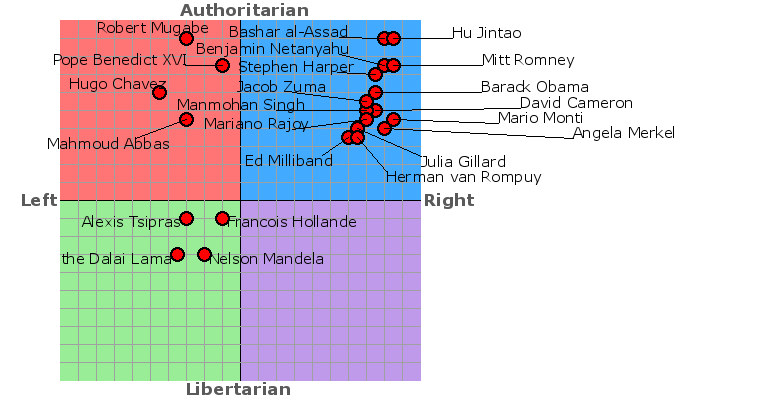 Some world leaders according to PoliticalCompass.org (only vaguely related to this blog)
Some world leaders according to PoliticalCompass.org (only vaguely related to this blog)
A friend who studies political science commented on Facebook in response to my last blog, saying among other things that she was (I’m paraphrasing) “confused about my determination to attribute everything to left-right frameworks.” She has a good point and I thought it deserved a good response. I wrote what turned out to be a very long response… I’ll let you decide if it was a good response.
I thought I might share it here as well, because a lot of my recent blogs have drawn quite heavily on the left-right spectrum, and I thought some other people might be interested. As always, all comments are welcome.
~~~
The truth is that we probably largely agree that the left-right framework is over-simplified etc. – likewise with the Political Compass, which is only slightly less simplistic (two spectra instead of one).
Where we might differ is: I don’t think the left-right frameworks are completely useless and thus should be thrown out completely. Or at least, I only think they can/should be thrown out by people like yourself who have the time and knowledge to look into, and analyse, each party and philosophy and candidate on their own merits – which is barely anyone. I personally don’t have the time, knowledge or brain-power to analyse everything and everyone on its own merits without any generalisations to help categorise it.
When I use the left-right framework, I partly use it as shorthand for more complex realities (I think conciseness is vital in blogging, and I struggle enough as it is here). But I partly use it with an implied audience not of people like yourself who know I’m oversimplifying things, but of people who struggle to understand politics at all. I talk to quite a lot of people who describe themselves this way, and the number may surprise you as a POLS student… this is not to say that these people are stupid, they just haven’t put in the necessary hours and hours of time to understand politics. With local politics this category is even larger… I think I’ve probably done more research into it than most voters (at least most young voters), but I still don’t really understand anything beyond what I wrote in my last blog.
While over-simplified, I do think the left-right spectrum touches on some truth, for example the way neo-liberalism has shifted the political ‘centre’ in NZ. You as a POLS student would have more sophisticated ways of explaining this than me, but is it completely wrong to say that neo-liberalism involves a shift to the (economic) right? I think it’s a generalisation but a generally true generalisation.
I think if someone doesn’t understand politics at all, nor how NZ parties have shifted over the years, and then they hear my (admittedly simplified) explanation of both Labour and National shifting to the right economically since the 80s, they’ve increased their understanding. I don’t want to sound superior or condescending but if some of the people who struggle to understand politics (because they have other priorities, and haven’t put in the hours and hours you and I have into politics) read my over-simplified blogs and feel they understand it a bit more, I’m glad.
I also note that a lot of polls say that the current government’s policies are unpopular, but John Key as a person is very popular. There seems to be a disconnect from understanding the political realities and trends and philosophies that certain parties stand for (consciously or unconsciously), and the kind of policies they are likely to enact because of it. So if I can help to slightly decrease this disconnect, I’m glad too.
It’s partly my personality… I know a lot of people don’t like generalisations, but I do like them, as I feel that they can help us gain some kind of understanding of the patterns of how the world works. Even if they’re over-simplified, which they inevitably are, I think it’s still better than just seeing the world as random chaos and not having any grasp of the patterns at all.
I don’t think everything should be attributed to the left-right spectrum, and if what I write sounds like I’m doing that, it’s because I like to write in an extreme style, and I like to point out what I don’t think is being pointed out enough. It’s my impression that what’s pointed out a lot at the moment is personalities, individual quirks etc, but what’s not pointed out enough (in my experience) is the patterns and the groups of individuals that tend to believe certain things and do certain things.
It’s a bit like people saying that when multinational companies do horrible things, it’s because there’s a few bad apples. But if there’s a consistent pattern that multi-national companies, in their exclusive drive to maximise profit, act in psychopathic ways (cf. The Corporation documentary – which is probably oversimplified too), I think it’s worth pointing that out.
Likewise with Marryatt’s pay-rise. People might think it’s just a few bad apple individuals on council that voted for the pay-rise. But I think it’s worth pointing out that they seem to have all been right-leaning (correct me if I’m wrong), and that the four of them who are standing again are all standing for right-leaning political groupings (I-Citz and City 1st).
There’s another reason why I stubbornly cling on to the left-right spectrum as a way of describing things. The last few decades have seen a growth of ‘post-modern’ distrust of big stories and grand theories, and part of this is the growth of what has been called a ‘post-political’ and ‘post-ideological’ mindset, where we don’t like politicians to be tied to any big ideas, our politicians claim to be ‘pragmatic’ rather than ideological, and supposedly all the big grand narratives of religion, nationalism, communism etc. are dead.
But what this obscures is that there is in fact one ‘narrative’ that is far from dead. Capitalism (and consumerism, free markets, commodification, inequality etc) is more globally dominant than ever before, and it no longer needs a big narrative to support it – in fact it’s supported precisely by the post-modern turn from big theories to individual feelings and individual consumption. (You could also say that social liberalism/individualism is a narrative that is extremely powerful in the West, but I’d say that capitalism is more globally dominant – cf. China combining capitalism with social authoritarianism and doing it even ‘better’ than the countries who combine capitalism with democracy).
Paralleling this, in political science (from my outside perspective) there seems to be a movement towards seeing the old left-right frameworks as inadequate and seeing people who ‘still’ use them as out of touch. But again, I think this can potentially obscure real political phenomena like neo-liberalism, especially if you don’t replace my over-simplified ‘shifting to the right economically’ explanation with a better and more accurate explanation that is still accessible to non-POLS students.
So my question is what should we replace the left-right spectrum with? I think I’d be happy to abandon the left-right spectrum (and the political compass two-spectrum model) if I saw that there was a better alternative. I’m very happy to be corrected and educated here, but at the moment, all I see replacing the ‘old’ left-right model is A) from academics: complex theories that are inaccessible to most people, B) from politicians: cynical obscuring of the real political realities they represent. I’d rather have an ‘old-fashioned’ model that can be understood and engaged with than intentional or unintentional obscurantism that contributes to lack of understanding and apathy.
